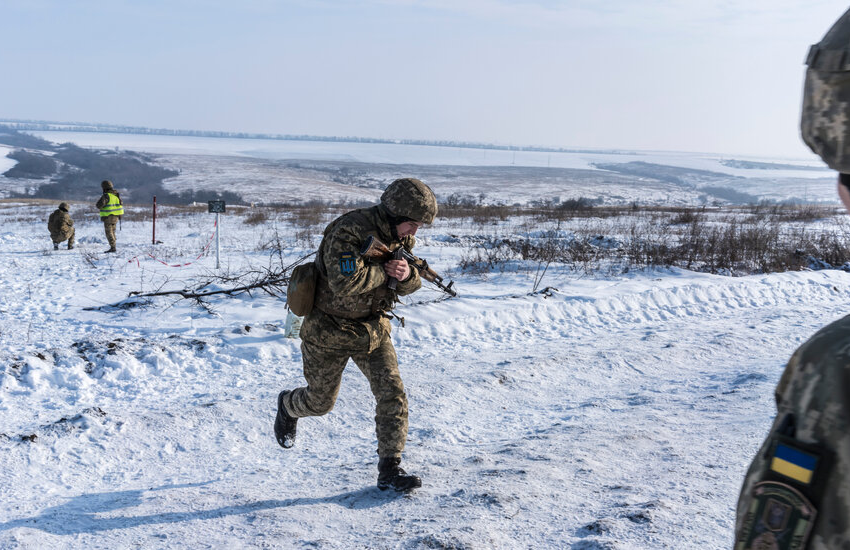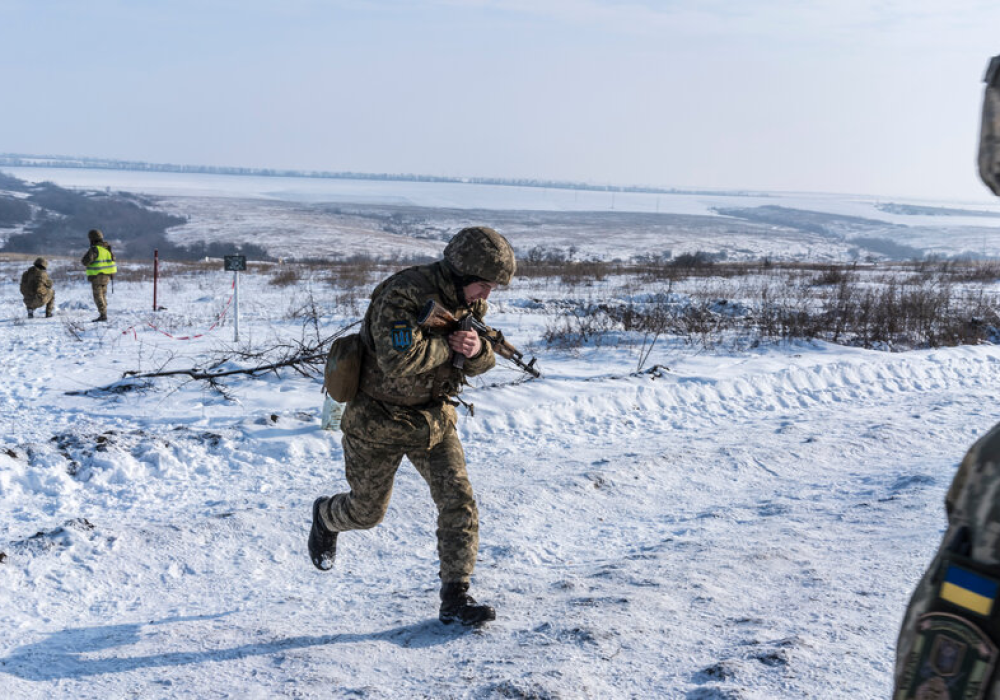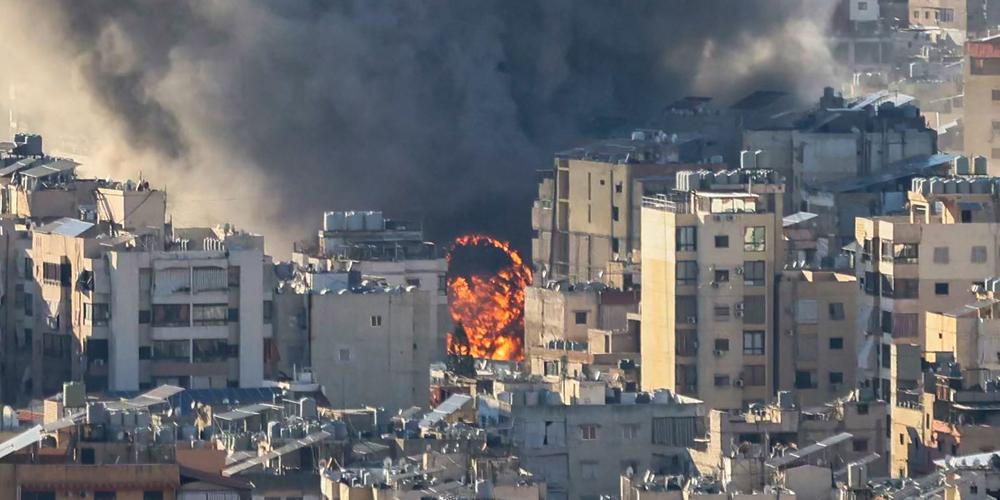LONDON — British lawmakers will be asked to consider legislation this week that would let ministers impose a wider range of sanctions against Russia should it move against Ukraine, the British foreign secretary said Sunday.
The foreign secretary, Liz Truss, outlined the plan in an interview with the broadcaster Sky News, presenting it as part of a broad range of efforts to deter further aggression from President Vladimir V. Putin of Russia. Britain is already supplying defensive weapons to Ukraine and has offered to increase its troop deployments elsewhere in Eastern Europe.
Also on Sunday, Russia’s foreign minister, Sergey V. Lavrov, said that Russia would seek clarity from NATO on its intentions days after the United States and its allies delivered a formal rejection to Moscow’s demands that NATO retreat from Eastern Europe and bar Ukraine from joining the alliance.
Mr. Lavrov’s comments in an interview with Russia’s main government television channel suggested that while Moscow is displeased — as expected — with the Western response, there may still be a flicker of hope for further diplomacy.
But if diplomacy fails, Ms. Truss said, the British legislation will give the country more punitive options, so there will be “nowhere to hide” for oligarchs or “any company of interest to the Kremlin and the regime in Russia.” Britain has long been a financial hub for Russia’s wealthy and well connected, with one British parliamentary report describing London as a “laundromat” for illicit Russian money.
While the British Parliament typically takes weeks or months to pass a bill, emergency procedures allow it to legislate in as little as a day under some circumstances.
Ms. Truss said Britain would rule nothing out and would “look at every option” to support Ukraine, as the British government and its allies pursue diplomacy at the same time as developing economically punitive measures that might persuade Mr. Putin not to invade.
“We’re doing all we can through deterrence and diplomacy to urge him to desist,” Ms. Truss, who plans to meet with Ukraine’s president and the Russian foreign minister in the next two weeks, told the BBC.
Biden administration officials reiterated on Sunday that the United States believes a Russian invasion is “imminent,” even if Ukraine has been trying to play down the crisis.
Understand Russia’s Relationship With the West
The tension between the regions is growing and Russian President Vladimir Putin is increasingly willing to take geopolitical risks and assert his demands.
“We have been nothing but clear and transparent about our concerns here at the Pentagon over the rapid buildup for the last few months around the border with Ukraine and in Belarus,” the Pentagon’s press secretary, John F. Kirby, said on “Fox News Sunday.”
On CNN’s “State of the Union,” the chairman of the Senate Foreign Relations Committee, Senator Bob Menendez, Democrat of New Jersey, made a joint appearance with the panel’s top Republican, Senator Jim Risch of Idaho. Mr. Menendez said there was “an incredibly strong bipartisan resolve to have severe consequences for Russia if it invades Ukraine, and in some cases for what it has already done.”
Mr. Menendez said that legislation under discussion was expected to include “massive sanctions against the most significant Russian banks: crippling to their economy, meaningful in terms of consequences to the average Russian and their accounts and pensions.”
Sanctions, though, were not Mr. Lavrov’s focus on Sunday — NATO was.
He said an official request was sent Sunday to both NATO and the Organization for Security and Cooperation in Europe, an alliance that includes Russia. Mr. Lavrov described it as “an urgent demand to explain how they intend to fulfill their obligation not to strengthen their security at the expense of the security of others.”
“If they do not intend to, then they must explain why,” Mr. Lavrov said, adding that “this will be the key question in determining our further proposals, which we will report to Russia’s president.”
The Kremlin has been highly critical of NATO’s so-called open-door policy of granting membership to former Communist bloc countries without taking Russia’s security concerns into account. In his remarks, Mr. Lavrov reiterated a frequent Kremlin complaint that NATO, in the years since the Soviet collapse, had crept ever closer to Russia’s border.
“Now they’ve come up to Ukraine, and they want to drag that country in,” Mr. Lavrov said. “Though everyone understands that Ukraine is not ready and will make no contribution to strengthening NATO security.”
Understand the Escalating Tensions Over Ukraine
Ominous warnings. Russia called the strike a destabilizing act that violated the cease-fire agreement, raising fears of a new intervention in Ukraine that could draw the United States and Europe into a new phase of the conflict.
The Kremlin’s position. President Vladimir V. Putin of Russia, who has increasingly portrayed NATO’s eastward expansion as an existential threat to his country, said that Moscow’s military buildup was a response to Ukraine’s deepening partnership with the alliance.
As the temperature stayed high between most of the West and Russia, one bit of statesmanship did apparently succeed. Russia backed out of a plan to conduct naval exercises next week in international waters off Ireland’s coast, which had drawn protests from Irish fishing groups and the Irish government.
The drills were set to take place 150 miles off Ireland’s southwest coast, outside its territorial waters but within Ireland’s exclusive economic zone, an area where the country has sovereign rights over marine resources.
Fishing groups raised concerns that the activity could disrupt marine life and jeopardize an important region for their trade. One organization had planned to peacefully protest the exercises.
Ireland’s foreign minister, Simon Coveney, described the proposed drills in an interview last week with the Irish public broadcaster RTE as “simply not welcome and not wanted right now.”
While acknowledging that Russia’s plans did not breach the international law of the sea, he said in a statement that his department had raised several concerns with Russian authorities “in light of the current political and security environment in Europe.”
Moscow then decided to relocate the exercises outside of the Irish exclusive economic zone “as a gesture of good will,” the Russian ambassador to Ireland, Yuriy Filatov, said in a statement released on Saturday.
Mr. Coveney said on Twitter that he welcomed Russia’s response.
Emily Cochrane and Helene Cooper contributed reporting from Washington, and Michael Schwirtz from Kyiv, Ukraine.











